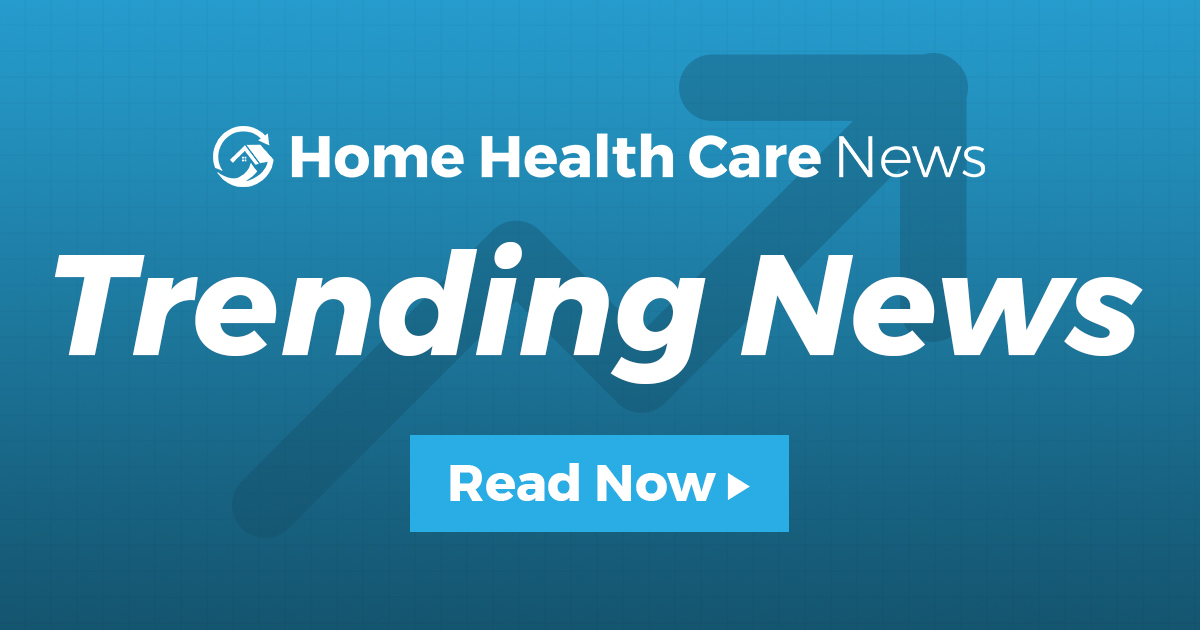
While the Medicare Advantage (MA) home care opportunity continues to expand, cynics have been quick to criticize it.
Some say the opportunity is too small to be worthwhile — and that it’s more of a trendy talking point than a viable business option for most home care providers.
In 2020, only 619 of more than 3,000 MA plans nationwide decided to offer some sort of in-home support services, according to data shared by ATI Advisory. Of course, that was before the COVID-19 emergency, which experts have predicted will add fuel to MA’s home care fire.
On top of that, MA plan reimbursement for home-based care providers is notoriously low. Amedisys Inc. (Nasdaq: AMED) President and CEO Paul Kusserow painted a picture of MA home health rates — different from home care rates — during a recent presentation.
“I still think that Medicare Advantage is the place to be for us, but not under the current reimbursement,” Kusserow said. “Average reimbursement on a visit for Medicare Advantage is $125 a visit, versus $165 for fee-for-service Medicare.”
While such figures and statistics have been well-publicized, the actual day-to-day of what it’s like to provide home care to MA beneficiaries is not. In fact, that’s another common criticism of MA partnerships — few people really know what they’re like.
As such, Home Health Care News set out to learn more.
To discuss the more granular details of working with MA plans, HHCN recently connected with Gavin Ward, a regional director of strategy for 24 Hour Home Care. The Los Angeles-based home care provider is one of the few agencies nationwide to have secured those highly sought after MA partnerships.
Ward dove into what services his agency provides to MA beneficiaries, how often it provides them and more — including how much of 24 Hour Home Care’s revenue was funded by MA plans in 2019.
You can read HHCN’s conversation with Ward below, edited for length and clarity.
HHCN: First of all, how many hours on average do you spend caring for MA beneficiaries per month?
Ward: Our partners are grateful for the flexibility we have in caring for their members, as MA plans are not currently designed to fund full-time caregiving long-term.
Authorizations vary per plan, and most are short-term, averaging less than a month of care and during a transition. An average length authorization would be for 20 total hours of care.
What’s the most common type of home care service you provide for MA members?
Most of the members receiving care from us require some form of personal care and transfer assistance.
Popular Reports
Our caregivers receive additional training upon hire to ensure they are safely and properly caring for members’ needs, especially during the pandemic — which is why we’ve developed safety protocols with our team, which includes an infectious disease physician.
I’m interested in hearing more about what the process looks like when you get a request for service from an MA plan. Can you provide more details on that and how it differs from the intake process for other clients?
Each health plan varies, but we continuously work to understand our partners’ ecosystems and to serve as an extension of their teams.
Like most contracted partners outside of the MA world, we serve alongside a case manager or social worker, care coordinator, and/or authorization assistant for each client. Our plan partners appreciate that we have dedicated care coordinators for each client as well as a dedicated intake team seven days per week to accept new cases.
The main difference with MA clients and our general client base is that we are not accepting payment information, nor discussing the cost of care.
How does payment work? Generally, do you get paid more during months when you care for more MA beneficiaries or is it more of a flat monthly rate?
While I can’t go into the fine details of the payment process, what I can share is that we file via a third-party claims system, which could present a challenging onboarding process if an in-home care organization is not equipped with the right personnel and systems.
Smaller firms may struggle learning and adapting to these systems, but we have a strong, knowledgeable accounting team that has learned these systems and can invoice properly.
Some MA plans are also not used to working with non-medical agencies and may go through their own challenges ensuring their systems are designed to properly accept non-medical home care claims.
Do you have any statistics you can share regarding how much of your revenue is attributable to MA plans?
MA plans are still in their infancy stages, and we are appreciative of the opportunity to be selected and partner with them to provide care to members that are in need. As a result, it is still too early to disclose impact, which the plans themselves will also likely state.
Less than 1% of our revenue was funded by MA plans in 2019.
"Hour" - Google News
July 27, 2020 at 02:01AM
https://ift.tt/30O6szz
24 Hour Home Care Gets Candid About Logistical, Day-to-Day Aspects of MA Partnerships - Home Health Care News
"Hour" - Google News
https://ift.tt/2WcHWWo
https://ift.tt/2Stbv5k
Bagikan Berita Ini














0 Response to "24 Hour Home Care Gets Candid About Logistical, Day-to-Day Aspects of MA Partnerships - Home Health Care News"
Post a Comment